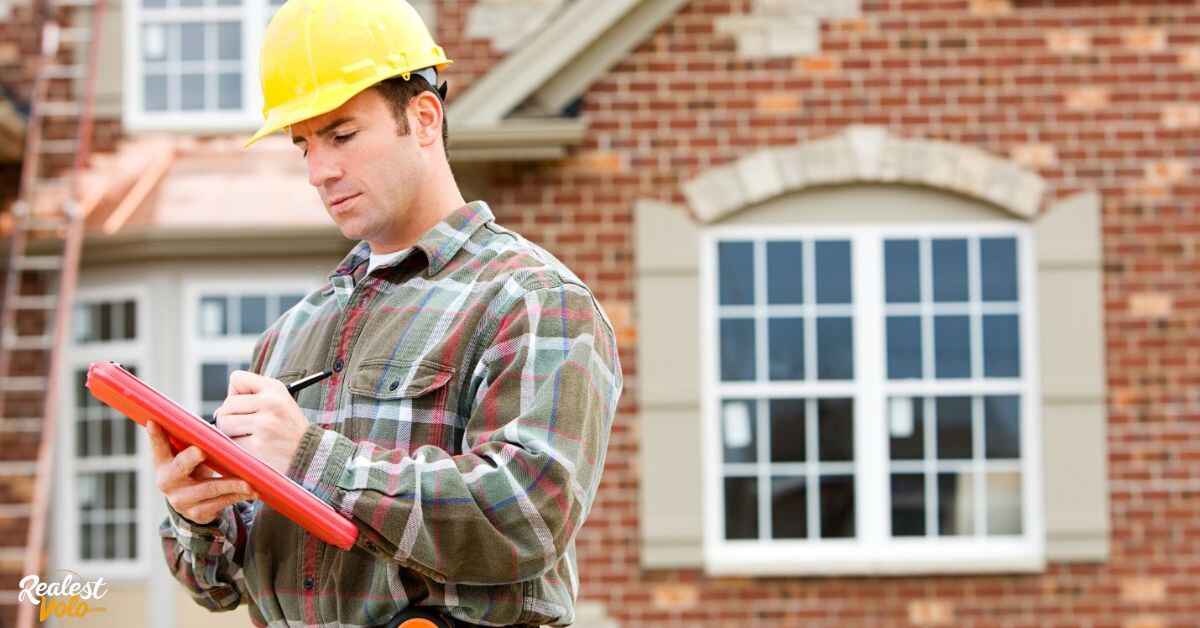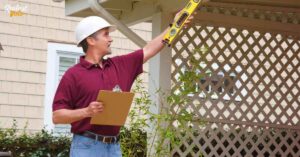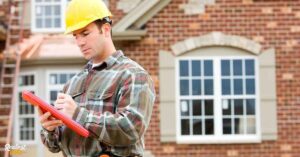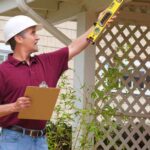For investors considering manufactured homes as part of their commercial real estate portfolio, a key question is: how long does such prefabricated dwelling lasts for? Contrary to what is commonly believed about manufactured homes, today’s manufactured homes are fairly robust despite not being constructed on site like the traditional stick-built homes.
If well maintained and properly used, sitting, they can last for between 30-55 years. All the aspects such as the material used in construction, type of the house foundation, geographical location, and setting also dictate the durability of a home. Weathering and humidity are considered a threat to the fragments, when exposed to these conditions, deterioration is worsened.
Manufactured homes are a cheaper form of housing with what can be considered decent durability, and as such are an interesting proposition as a vehicle to deliver quality workforce rental housing. Thus, it is vital to determine their potential life to calculate the rates of returns and control long-term investment in fixed assets for this investment class.
How Long Will Your Manufactured Home Last?
Manufactured homes, when built and maintained properly, can last as long as traditional site-built homes. These homes have an average lifespan of 30 to 55 years, depending on various factors. High-quality materials, proper installation, and regular maintenance play crucial roles in extending their longevity.
Just like any other home, manufactured homes require regular upkeep, including roof inspections, plumbing checks, and exterior maintenance. Investing time and effort into these areas can significantly increase the lifespan of your manufactured home, ensuring it remains a comfortable and valuable living space for decades.
Also Read: What Is a BOV In Real Estate?
Factors Affecting the Lifespan of Manufactured Homes
When it comes to manufactured homes, their lifespan can be influenced by several factors. Understanding these can help you make a better investment decision. The materials and construction methods used play a crucial role, as does regular maintenance and upkeep.
Where the home is placed can significantly impact how long it lasts. By paying attention to these factors, you can ensure your manufactured home remains a valuable asset for years to come.
Construction Materials and Methods
The quality of materials and construction techniques used in manufactured homes can greatly affect their durability. Homes built with high-quality materials and modern methods tend to last longer. For instance, homes constructed after 1976 must meet HUD standards, which ensure better safety and longevity. It’s worth researching the specific materials and methods used in any home you’re considering, as this can provide insight into its potential lifespan.
Maintenance and Upkeep
Regular maintenance is key to extending the life of a manufactured home. Simple tasks like inspecting the roof, cleaning gutters, and checking for leaks can prevent minor issues from becoming major problems. It’s also important to address repairs promptly and invest in periodic updates, such as painting and sealing. Consistent upkeep not only preserves the home’s condition but also enhances its overall value, making it a sound investment.
Location and Placement

Where you place your manufactured home can significantly influence its longevity. Homes in areas with extreme weather conditions, such as hurricanes or heavy snowfall, may require more frequent maintenance. Proper placement, like ensuring a level foundation and good drainage, can prevent issues like shifting or water damage. Choosing a location with a moderate climate and stable ground can help maximize the lifespan of your manufactured home.
Do Manufactured Homes Hold Their Value?
Manufactured homes can hold their value well, but several factors influence this. Key elements include the quality of construction, location, and maintenance. Homes built after 1976, following stricter HUD standards, fare better. Location also matters; homes in desirable areas or well-maintained communities tend to appreciate more.
Regular upkeep and improvements can enhance a home’s value over time. While manufactured homes might depreciate faster than site-built homes initially, they can still be a solid investment if well-maintained and located in a thriving community.
Is It A Good Idea To Buy A Manufactured Home?
Buying a manufactured home can be a smart choice for many reasons. These homes offer a more affordable housing option compared to traditional site-built homes. They’re built in controlled environments, ensuring consistent quality.
Plus, modern manufactured homes come with a range of stylish and functional features. Maintenance costs can also be lower if the home is well cared for. It’s important to consider factors like location, resale value, and the cost of land if it’s not included. Overall, manufactured homes can be a great investment for budget-conscious buyers.
Why Manufactured Housing Is A Good Fit for Investors
Manufactured housing presents an attractive opportunity for investors. First, the lower initial cost compared to traditional homes means a smaller capital outlay. These homes can also be placed in manufactured home communities, which often have lower maintenance costs and strong demand from renters.
Manufactured homes appreciate in value, especially when well-maintained. The consistent rental income from these properties can provide a steady cash flow. Investors can also benefit from tax advantages associated with real estate investments. In summary, manufactured housing is a cost-effective, profitable option for investors.
But Don’t Forget the Land
When considering a manufactured home, the land it sits on is crucial. Owning the land can increase the home’s value and provide more stability. If the home is placed on leased land, ensure the lease terms are favorable and long-term.
The location of the land also impacts the home’s value and resale potential. Proximity to amenities, schools, and transportation can make a significant difference. Additionally, check zoning laws and land regulations to avoid future issues. Investing in both the home and land can offer greater financial security and peace of mind.
Also Read: Why I Left Compass Real Estate?
Maximizing the Lifespan of Manufactured Homes
Manufactured homes can last a long time if they are properly cared for. Taking steps to ensure they are well-maintained, regularly inspected, and updated can make a significant difference.
Protecting these homes from environmental factors will help preserve their condition. By following a few key practices, you can maximize the lifespan of your manufactured home and ensure it remains a valuable asset for many years.
Proper Installation and Setup
Proper installation and setup are crucial for the longevity of a manufactured home. Ensure that the home is placed on a stable foundation and anchored securely. This prevents shifting and settling over time. Hiring experienced professionals to handle the installation ensures that all components are correctly connected and leveled, which helps avoid future structural issues.
Regular Maintenance and Inspections
Regular maintenance and inspections keep a manufactured home in top shape. Routine tasks like cleaning gutters, checking seals, and servicing HVAC systems prevent minor issues from becoming major problems. Annual inspections by a professional can catch potential issues early, ensuring that repairs are made promptly and efficiently. Keeping a maintenance schedule helps prolong the home’s lifespan significantly.
Upgrades and Renovations
Upgrades and renovations can add years to a manufactured home’s life. Consider updating key areas like the roof, siding, and windows to improve durability and energy efficiency. Modernizing kitchens and bathrooms not only increases the home’s appeal but also ensures it meets current standards. These enhancements not only extend the home’s life but also enhance its value and comfort.
Protecting Against Environmental Factors

Protecting your manufactured home against environmental factors is essential. In areas prone to severe weather, install storm shutters and ensure the home is securely anchored. Regularly inspect and maintain the roof and siding to guard against water damage. Landscaping can also play a role—planting trees strategically can provide shade and wind protection, reducing wear and tear from the elements.
How are Manufactured Homes Built?
Manufactured homes are built in a controlled factory setting, which ensures consistent quality and efficiency. The construction process starts with a robust steel frame, which acts as the foundation. Skilled workers then assemble the walls, floors, and roof, using high-quality materials like wood, insulation, and drywall.
Electrical wiring, plumbing, and HVAC systems are installed next. Each section of the home is meticulously inspected for compliance with HUD standards. Once complete, the sections are transported to the home site, where they are joined and secured, providing a sturdy and durable residence.
Investment Considerations

Investing in manufactured homes can be a savvy choice for those looking into CRE (Commercial Real Estate). These homes offer unique advantages such as lower initial costs and potentially high rental yields.
It’s crucial to understand the various factors that can impact the longevity and financial performance of your investment. From initial construction quality to ongoing maintenance, every aspect plays a role. Let’s break down some key considerations to help you make an informed decision.
Cost-effectiveness of Manufactured Homes
Manufactured homes are often more cost-effective than traditional site-built homes. They typically have lower construction and labor costs, making them an attractive option for investors. Additionally, they can be installed quickly, reducing the time to generate rental income. This cost efficiency can lead to higher returns on investment, especially in areas with high demand for affordable housing.
Resale Value and Appreciation
The resale value of manufactured homes can vary significantly. While they generally depreciate more rapidly than site-built homes, location and maintenance can influence their appreciation potential. Homes in desirable areas or those well-maintained can retain or even increase in value over time. Understanding market trends and keeping the home in good condition are crucial for maximizing resale value.
Rental Potential and Income Stream
Manufactured homes can offer a reliable rental income stream, particularly in markets with high demand for affordable housing. Their lower purchase price allows for competitive rental rates, attracting a broad tenant base. Additionally, they can be a good option for mobile home parks or communities, where multiple units can generate substantial income.
Manufacturing Money
Manufactured homes can be a great investment in the world of commercial real estate (CRE). These homes, built in factories and then transported to their final location, offer a cost-effective alternative to traditional site-built homes.
For investors, understanding the potential longevity of manufactured homes is crucial. Generally, with proper maintenance, these homes can last 30 to 55 years or more. This lifespan, combined with lower upfront costs and the ability to place them in desirable locations, makes manufactured homes a lucrative option for CRE investors.
Frequently Asked Question
What Is The Typical Lifespan Of Manufactured Homes In CRE Investing?
Manufactured homes can last between 30 to 55 years or more with proper maintenance.
What Factors Affect The Longevity Of Manufactured Homes In Commercial Real Estate?
Construction quality, maintenance practices, and environmental conditions play significant roles in determining lifespan.
Are There Differences In Lifespan Between Manufactured And Traditional Site-Built Homes?
Manufactured homes generally have a similar lifespan to traditional homes when properly maintained.
How Can Investors Maximize The Longevity Of Manufactured Homes In Their Portfolios?
Regular maintenance, adherence to construction standards, and selecting favorable locations can extend the lifespan of manufactured homes.
What Are The Financial Implications Of The Lifespan Of Manufactured Homes For CRE Investors?
Understanding the lifespan helps investors gauge long-term maintenance costs, depreciation rates, and potential resale value, impacting overall investment returns.
Final Words
Investing in manufactured homes can be a profitable venture in commercial real estate (CRE). These homes, constructed in factories and transported to their sites, offer an affordable alternative to traditional homes.
With proper care and maintenance, manufactured homes can last between 30 and 55 years or more. Key factors influencing their longevity include the quality of initial construction, regular upkeep, and environmental conditions. Understanding these elements is essential for maximizing the lifespan and investment returns of manufactured homes in the CRE market.











